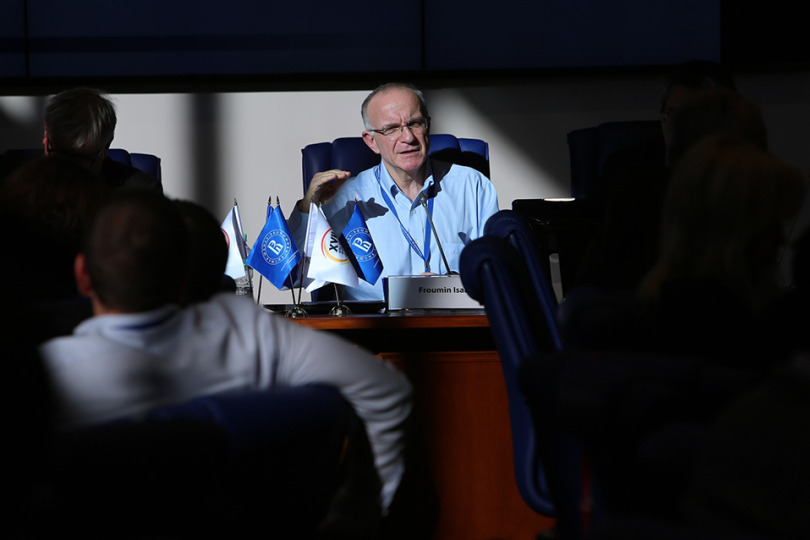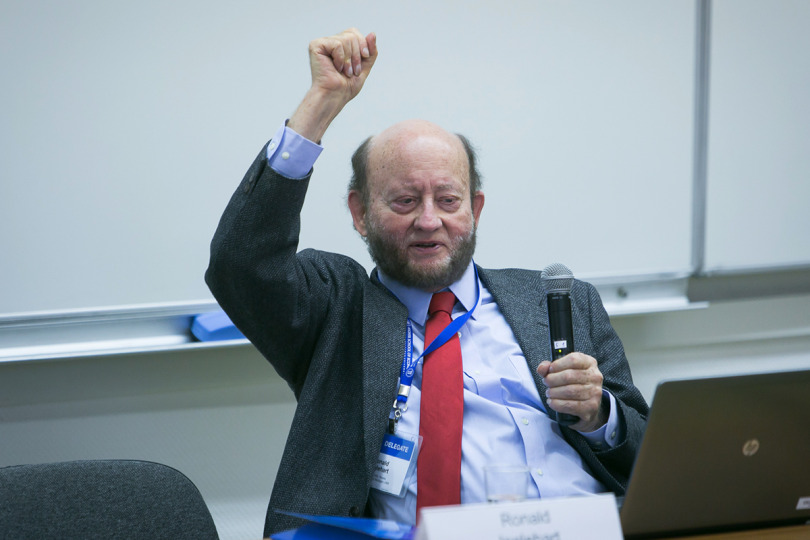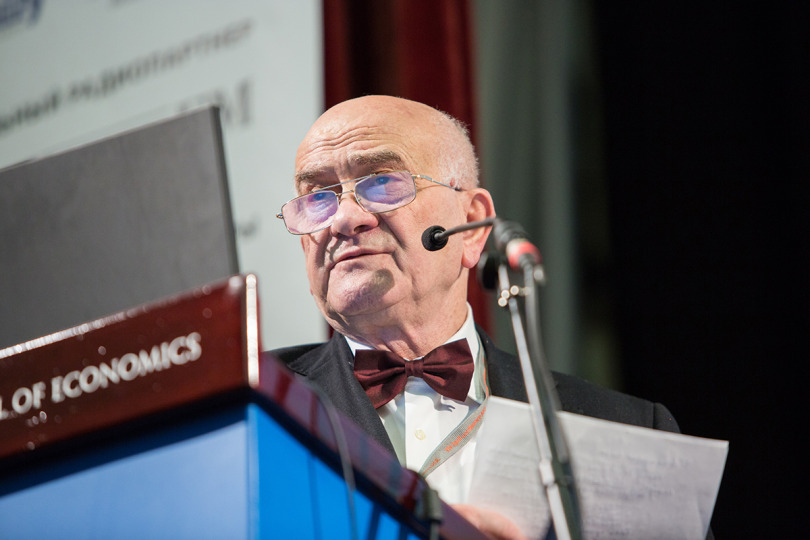
Low Income of Parents Should Not Stand in the Way of Their Children's Education
The plenary session of the XVII International Academic Conference ‘From the Broad Educational Opportunities Towards Social Mobility Through Education’, held on April 20, 2016, was dedicated to the ways of overcoming inequality in education.
Competition and Cooperation
On April 19th, 2016, a seminar on ‘Federalism and Regionalism in Russia and Germany’ took place at HSE in St. Petersburg as part of the 13th German Week in St. Petersburg. The seminar was organized by the Department of History and the Department of Political Science at HSE in St. Petersburg together with the Consulate General of the Federal Republic of Germany in St. Petersburg and the Forum of Federations.
National Award Ceremony in Applied Economics Held at HSE
The prestigious National Award in Applied Economics 2016 has been granted to Ekaterina Zhuravskaya, Professor at the Paris School of Economics, and Evgeny Yakovlev, Professor and Director of the New Economic School Data Centre, for their paper ‘The Unequal Enforcement Of Liberalization: Evidence From Russia's Reform Of Business Regulation’. The National Award ceremony took place on April 20, 2016 as part of the XVII April International Academic Conference on Economic and Social Development.
'We'll Have to Struggle for Even 1.5%-2.5% Growth'
At the latest plenary session of the XVII April International Academic Conference, participants discussed a thought-provoking new paper called The Russian Economy Before the Long Transitionby Natalia Akindinova, Yaroslav Kuzminov, and Evgeny Yasin of the Higher School of Economics.

Computers to Spot Pedophiles
Concept lattices can help spot pedophiles on the web. Researchers of the HSE's Department of Data Analysis and Artificial Intelligence have helped the Dutch police create a computer program that can detect internet pedophiles and even determine how dangerous they can be.

Human Values Depend on Economy
On April 18, 6th LCSR International Research Workshop opened within the framework of April International Conference. Ronald Inglehart, the Scientific Advisor of Laboratory for Comparative Social Research delivered an honorary lecture on ‘Reshaping Human Motivations and Society, 1896-2014’. The lecture discussed the correlation between societal transformations and changing values.
Russian President Vladimir Putin Sends Greetings to April Conference Participants
Russian President Vladimir Putin’s greeting to participants and attendees of the XVII April International Academic Conference on Economic and Social Development.
Smart Macroeconomic Policies Essential but Not Sufficient for Economic Growth
A plenary on macroeconomics was held at the HSE's XVII April International Academic Conference on April 19, 2016.
Macroeconomic Policies and Financial Markets: Progress and Problems
This year, the April Conference's plenary sessions will be held in a new format, specifically, discussions of the written texts of the papers prepared by the researchers. One session will focus on macroeconomic policy. Another will discuss policies regarding financial markets. The session moderators Evsey Gurvich and Nikolay Berzon describe some of the main topics below.

'Our University Is Growing Together with the April Conference'
April 19th marks the official start of the XVII April International Academic Conference on Economic and Social Development. Below, HSE Academic Supervisor Evgeny Yasin, who is also the Chairman of the Conference’s Programme Committee, discusses what participants can expect from this year’s conference.

